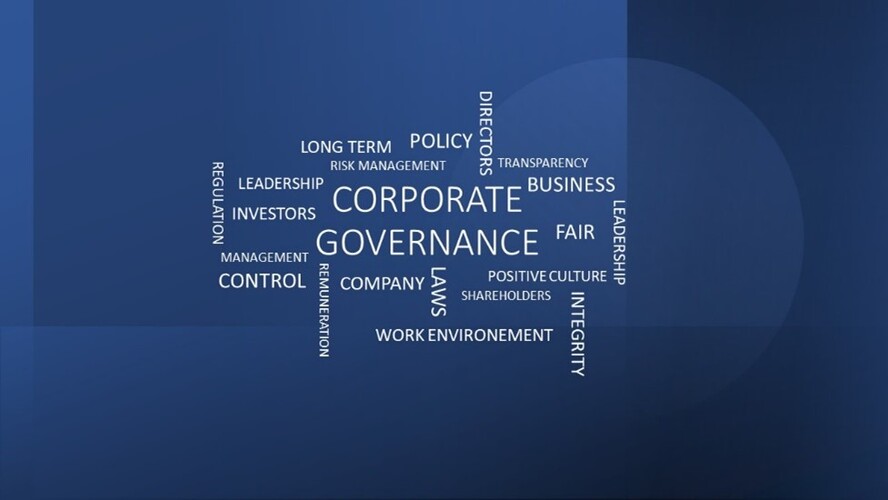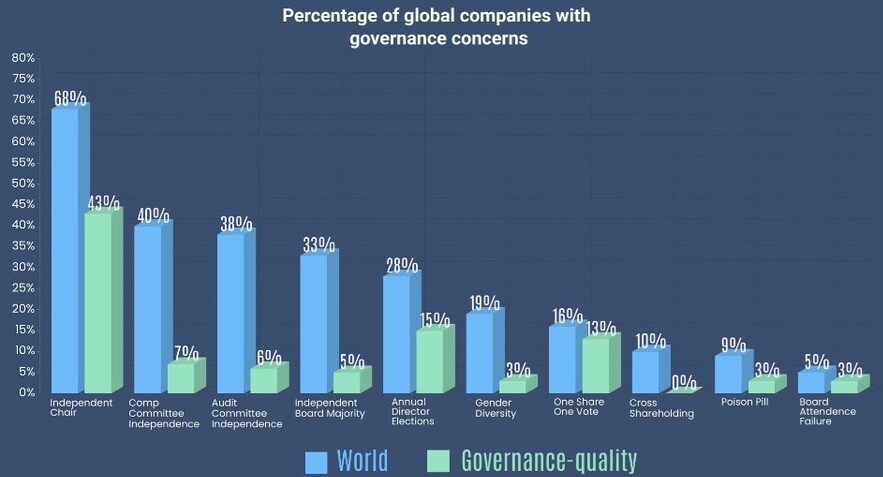Corporate governance standards are a framework within which operational and behavioural standards for the board, the executive management and the wider staff are set. Hierarchy in harmony. It comes largely with an accountability movement, better management, and better control, and is based essentially on the principles of transparency, independence, and responsibility.
What is the history of corporate governance?
If the history of corporate governance is seen in terms of how long publicly traded companies have existed, with directors in charge and shareholders seeking news on performance, we can cast our mind back to 300-400 years. In the beginning of the 17th century, more precisely in 1602,
the Dutch East India Company (VOC) shaped modern corporations and their governance framework through the
separation of ownership and management, legal personhood, and limited liability for shareholders and directors.
These corporate changes brought great resource mobilisation, activity coordination, allocated wealth and created demand for new management strategies leading to the early semblances of a governance board. The economic success of the VOC was considered effective thanks to its governance structure envisioned to be a precondition to long-lasting and profit-driven companies. The Dutch pioneered a simple corporate governance system and frameworks that are still used to this day.
However, the idea of managers being accountable to shareholders, through the terminology of corporate governance is a much more recent development that can be traced back to the 1970s in the United States. Corporate governance has changed a lot throughout the years and their model did not encompass the modern responsibilities of today’s boards of directors. The complexities and nuances of these responsibilities is something that has increasingly come into consideration.
What is a good and efficient corporate governance?
Corporate Governance can be described as a set of relationships between a company's management, board, shareholders, and other stakeholders, which provides the structure through which the objectives of the company are set.
It covers a number of different aspects and encompasses all processes, regulations and laws designed to frame the way the company is directed, administered and controlled.
Good corporate governance is essential in supporting business growth.
Good governance provides mechanisms to ensure the leadership, integrity and transparency in decision-making. It must help to set the objectives of the company, the means to reach them and how to assess performance.
What are the standards of good governance?
- A strong leadership contributing to effective governance through collaboration, communication, and effective guidelines on roles and responsibilities
- A positive culture increasing employee enthusiasm, encourages motivation and productivity, resulting in better company performance
Good governance mechanisms may be evidenced by standards of good practice in relation to strong leadership, a positive culture, remuneration policy, presence of independent directors, disclosure of the company roles and structure and robust risk management.
These all encourage and reinforce behaviours that ensure company representatives act to protect the long-term interests of the company and its shareholders.
What are recent corporate governance scandals?
Corporate governance may have encountered noticeable changes over the past decades but, even though it is increasingly being and becoming a hot topic in today’s boardrooms, scandals still occur.
Carillon, the domino effect (2018): Carillion plc was a British multinational construction and facilities management services company based in the United Kingdom.
"The largest ever trading liquidation in the UK" occurred in January 2018, resulting in 3,000 job losses, and hindering almost 450 public sector projects, for which the company was contracted. When Carillion collapsed, smaller companies and suppliers that depended on Carillion for outsourced services went bankrupt. KPMG has been sued for £1.3bn for missing red flags and failing to detect the misstatements on Carillion’s accounts.
Deutsche Bank’s DWS unit and ESG greenwashing (2022): The retail money management business DWS allegedly engaged in “greenwashing” in which environmental, social and governance (ESG) investments were sold under false claims. In recent years, DWS also faced legal controversies regarding money laundering in Russia, interest rate manipulation and violating the US-Iran embargo, among others (Deutsche Welle, 2022).
Why corporate governance has become increasingly important?
In fact, we need some improvements, and we must do better. Effectively, the world is evolving at a fast pace, and corporate governance is likely to embrace new challenges such as artificial intelligence and digital currencies. The rise of
modern technologies and general innovations are threatening the relevance of current corporate governance best practices and legislation.
Corporate governance does not represent the health of an organisation but its hygiene. It should be adapted to the complexity of a company rather than its size. Therefore, the growing complexities must be considered, taking into account conflicts of interest, power distribution, environmental and social responsibilities, decision-making processes…
Corporate governance thus requires regular board meetings, business control and well-defined responsibilities. What if it was going hand in hand with compliance and financial regulation standards? In fact, a robust risk management system as well as
customer transparency and reliability alongside a sturdy corporate governance constitute a fundamental cornerstone of any good business.
If you would like to know more about what Pideeco can do for your business, do not hesitate to
contact us !









